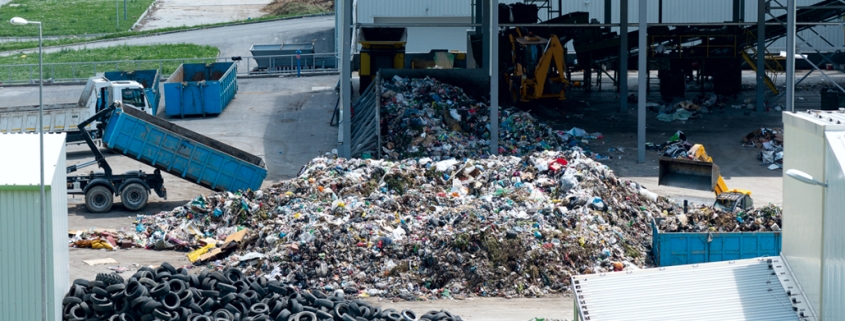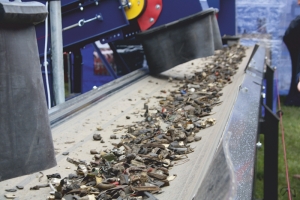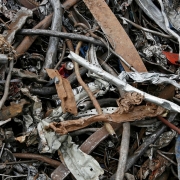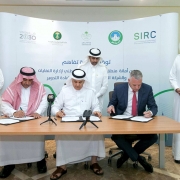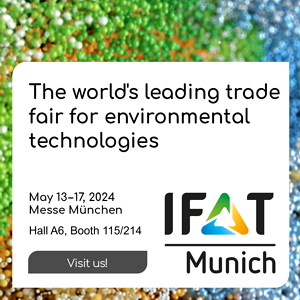Bulgaria: “All Beginnings Are Hard“
In Bulgaria, recycling of municipal waste including composting remains relatively low with 25 percent compared to the European average of 44 percent.
In 2014 the recycling rate actually decreased in comparison to 2013 by 3 percent. Composting remains at a very low level of two percent. And the country still has one of the highest landfilling rates of municipal waste in the EU: It reached 74 percent in 2014 compared to the EU average of 28 percent, according to the latest EU Environmental Implementation Review Country Report. Not without reason an EU-wide assessment of waste management by the Member States recently placed the country at the bottom of the list, merely trumping Greece.
Ambitions ended unfulfilled
Since the country’s accession to the EU in 2007, Bulgaria has tried to catch up with EU directives. A National Waste Management Program 2009-2013 was published, the Waste Framework Directive was transposed into national law by the Waste Management Act in 2012, and a National Waste Management Plan 2014-2020 has been approved. But according to a report written on behalf of the EU Commission, their implementation was hampered by “administrative and institutional drawbacks“. Or – as a comprehensive study edited by the German Federal Environmental Agency (Umweltbundesamt) points out – the national efforts came “predominantly in the form of programmatic work and the creation of necessary legal bases, rather than in actual regionally implemented successes“. Besides that the EU requirements and targets proved to be too ambitious for the implementation abilities or for several local possibilities of realization and ended unfulfilled or were neglected.
Bulgaria also started the installation of regional waste management systems. In 2013 already 144 systems for municipal waste disposal were built – 30 of them regional. They were organized as waste removal chains often ending in landfills. Some areas were served by 124 active, non-compliant landfills that missed the official targets in 2009. 87 sites were closed and re-cultivated, but until the end of 2015 still 104 active landfills were unsanitary and only 13 regional landfill site were rebuilt. Until record day, the EU Commission had expected the closure of at least 191 old dumping sites and the construction of 56 new modern or updated regional landfills. This permanent breach against the Landfill Directive led to an infringement procedure in July 2015, financial sanctions and a stop of EU funding.
The recycling market: active …
According to the EU Commission report, the recycling market in 2013 was very active. Two mechanical-biological treatment plants had been constructed in Varna (140,000 tons/year) and Plovdiv (125,000 t/y) under PPP (public private partnership); a mechanical-biological treatment and a compost plant at Han Bogrov near Sofia was under tender procedure. 2015 the building of a waste treatment facility in Sofia for 410,000 t/y was finished and put into operation, recycling 57 percent of the amount and producing 180,000 t/y RDF (refuse derived fuel). At the end of 2013 the Ministry of Environmental Protection and Water had registered 26 take back organizations, including package waste (4), end-of-life vehicles (2), used electronic appliances (5), used batteries and accumulators (7), waste oil (3) and scrap tires (5). Unfortunately, their efficiency was hampered by missing public consciousness, little incentives for waste material separation, and the lack of integrated waste treatment chains.
… and successful
Nevertheless, the Bulgarian Executive Environment Agency (EEA) reported for 2013 an overall recycling rate of 63 percent, including rates of 88 percent for paper, 69 percent for metal, 61 percent for glass, 58 percent for wood and 41 percent for plastics. The consumption rates were different showing a total of 23 percent, resulting from 85 percent of wood, 60 percent for glass, 29 percent for metal, nine percent for plastics and none for paper. According to the EEA, “the national recycling targets for materials for all types of packaging have been achieved: glass, plastic, paper / cardboard, metal and wood“. A certain waste incineration does not exist, but some co-incineration takes place. Less than 50,000 tons of municipal waste are co-treated in power stations and cement works. Nationwide five cement plants resort to the utilization of waste fractions of high thermal value coming from packaging, scrap tires, waste wood and refuse-derived fuel from treatment plants in Sofia.
The Environment Operational programs
Several investments have been made into the Bulgarian waste management sector, especially in form of EU funding. In 2007, the European Commission approved the Operational Program “Environment“ for the period 2007-2013. The total budget of the program was around 1.8 billion Euro. By 2013, the program planned to have realized 65 new or rehabilitated waste water treatment plants serving an additional 1.8 million people, and 22 integrated waste management systems serving an additional 3.5 million people. The EU wanted to back the “improvement and development of waste treatment infrastructure (ERDF)“ by 311 million Euro. But as Bulgaria could not follow the requirements, in spite of several reminders, the funds were partly frozen.
Meanwhile, the next Operational Program “Environment“ for 2014-2020 was launched with a total EU contribution of 1.5 billion Euro, aiming amongst others at 285,000 tons less waste going to landfills. The program for “waste management systems“ was EU funded by a total of 288 million Euro, while Bulgaria planned the building of a plant for combined waste-to-energy production in Sofia (254 million Lewa; today 129 million Euro), of composting plants for separate green and biodegradable municipal waste and plants for the primary treatment of municipal waste (131 and 98 million Lewa respectively, today 66 and 50 million Euro), of secondary treatment centers (44 million Lewa; today 22 million Euro) and of an anaerobic plant for the collection of biodegradable waste. But in the same year the European Commission took Bulgaria to Court over illegal landfills, because more than four years after the final deadline for closure Bulgaria still had 113 non-compliant landfills in operation and sued litigation before Bulgarian courts regarding the construction of 23 new compliant landfills. The result: The country will not get any EU funds for the building of landfills, but must finance it completely from the state budget.
International operating companies withdrew
Following the interpretation of consulting firm Germany Trade and Invest, the Operational Program “Innovations and Competitiveness“ 2014-2020 issued funds for the building of plants for separation and recycling of plastic, paper and cardboard as well as glass. More than that, it intends the extension of public-private partnerships (PPP) between communities and waste treatment organizations. This seems to turn out problematically. Experts agree that the Bulgarian waste market is difficult, as waste disposal and consulting enterprises criticize tenders and procurement processes and complain about poor payment habits of the municipal contracting authorities. Secondly, plants and services for waste treatment fall under concession law which makes the installation of public-private partnerships more complicated. And the third point is that PPP were merely entered for services in a small or middle scale, but turned up to be uninteresting for major projects.
It is not astounding, that – referring to a comprehensive study edited by the Federal Environmental Agency (Umweltbundesamt) – the presence of international operating waste disposal companies in own Bulgarian subsidiaries or joint ventures have significantly decreased compared to former years. Their part has been taken by private providers or again municipal businesses. Big companies like RWE Umwelt, Scheele International or Saubermacher have withdrawn completely and alienated their shares. So meanwhile the Bulgarian waste management market increasingly belongs to domestic enterprises without foreign capital shares. That complies with the current declaration of ViaExpo consultant Ginka Dimitrova, that there are 55 regional waste management associations, 45 regional systems for waste management and 8 transfer stations built.
Further potential exists
That does not mean that there is a standstill at all. As business intelligence provider AcuComm reported in February 2017, there were eight waste projects running in Bulgaria of a total value of 275 million Euro, focusing on mechanical-biological treatment and incineration with energy recovery. Their capacity alone stands for 59 percent of the country`s estimated annual waste generation. Three projects concentrate on power generation, representing 38 percent of the total. 70 percent of the projects by value and 60 percent by tonnage capacity are said to be already operational. There is even more potential. One year ago, the European Implementation Review on Bulgaria certified low waste recycling rates, but prospected that the full implementation of the existing waste legislation could create more than 14,000 jobs in Bulgaria and increase the annual turnover of the waste sector by over 1.5 billion Euro. Moving toward the targets of the EU waste legislation and policies could create additional 16,500 jobs and increase the annual turnover of the waste sector by additional 1.7 billion Euro.
Germany would like to foster such efforts. Signing a convention on joint environment projects at a meeting with the Bulgarian ministry of environment, Ivelina Vassileva, Germany’s state secretary Rita Schwarzelühr-Sutter declared in 2016: “We want to encourage enterprises to invest in environmental- and climate-friendly technologies. To absorb the technical and economic risks connected with the application of new technologies, we will support brave companies financially.“
Photo: deyana_72 / fotolia.com
GR 12018

